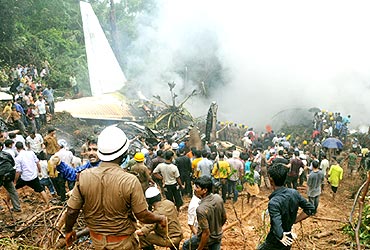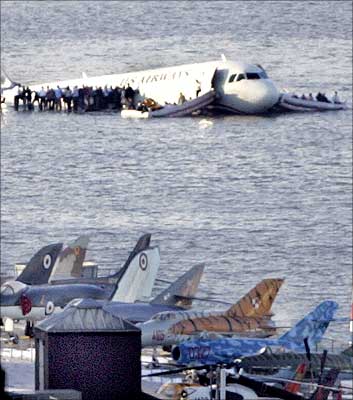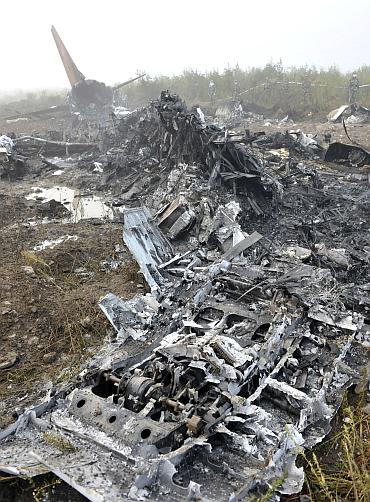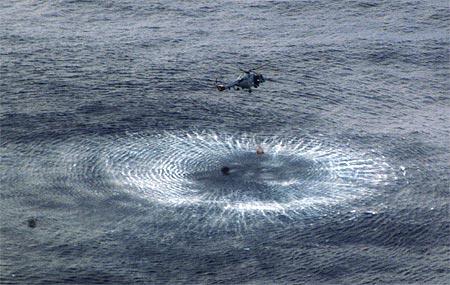Photographs: Dayanand Kukkaje / Daiji World
If you were planning to fly in a developing country, the results of this new study might change those plans, for the risk of airplane crashes there is 13 times higher than that in United States and other First World countries.
The more economically advanced countries in the developing world have better overall safety records than the others, but even their death risk per flight is seven times higher than that in first world countries.
In India, the death risk is 1 in 2 million
Image: 155 passengers aboard a US Airways airbus had a miraculous escape in Jan, 2009Photographs: Gary Hershorn/Reuters
Professor Arnold Barnett at Massachusetts Institute of Technology 's Sloan School of Management calculated that the chances of dying on a scheduled flight in a First World nation like the United States, Japan or Ireland was 1 in 14 million.
But if you are traveling in an airlines of economically advanced countries in the developing world such as Taiwan, India, and Brazil, the death risk per flight was 1 in 2 million. And in less economically advanced developing countries, the death risk per flight was 1 in 800,000.
Barnett points out that the distinction he makes is "between safe and very safe, and not between safe and dangerous."Flying to a Third World nation?
Image: 42 passengers were killed in a crash in China's Heilongjiang province in Aug, 2010Photographs: Reuters
He does note, "It is not uncommon for a month to pass without any fatal passenger-jet crashes anywhere in the world."
The research indicates that, in terms of deference to authority and 'individualism', the economically advanced developing countries are on an average far from those in the First World but almost identical to other developing countries.
Flying to a Third World nation?
Image: An Air France jet with 228 people on board crashed into the Atlantic Ocean in June, 2009Photographs: Reuters
Barnett concedes that he should "not get too caught up in speculation," but notes that one possible explanation for why the economically advanced countries did not fare better is that "their economic shift towards the First World has not been accompanied by a corresponding cultural shift."
The study appears in the current issue of Transportation Science, a journal of the Institute for Operations Research and the Management Sciences.





article